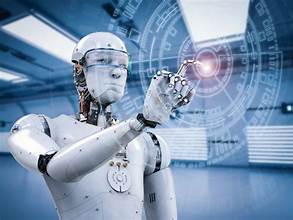Artificial Intelligence (AI) is increasingly becoming a dominant force in the contemporary technological landscape. Its rapid integration into various sectors is not just transforming how we work but also reshaping the global employment scenario. The purpose of this article is to delve into the multifaceted effects of AI on employment, drawing on insights from key international reports and analyses.
The Growing Influence of AI in Modern Society
Artificial Intelligence, or AI, is no longer a futuristic concept but a present reality, deeply embedded in our daily lives. From simplifying complex tasks to revolutionizing entire industries, AI’s capabilities are vast and continually expanding. Its role in advancing modern technology cannot be overstated, marking the beginning of a new era in human and machine interaction.
IMF’s Perspective on AI’s Impact on Employment
The International Monetary Fund (IMF) has raised crucial points regarding the implications of AI on global employment. According to their latest report, AI poses significant threats and opportunities to the job market. A startling revelation from the IMF analysis suggests that approximately 40% of jobs worldwide could be affected by AI advancements.
BBC Report: AI and Global Inequality
A report by the BBC, referencing IMF Managing Director Kristalina Georgieva, highlights a concerning aspect of AI’s proliferation. Georgieva points out that AI, in most scenarios, is likely to exacerbate global inequality. This disturbing trend calls for policymakers’ urgent attention to mitigate potential social tensions arising from technological disruptions.
The Disparate Impact of AI on Advanced and Developing Economies
The IMF report further indicates that AI will impact around 60% of jobs in advanced economies, with about half of these workers expected to benefit from increased productivity. However, the scenario is different in lower-income countries, where only 26% of jobs might be affected, largely due to the lack of infrastructure and skilled workforce to fully leverage AI.
Unemployment and Inequality: The Darker Side of AI
The introduction of AI in various sectors could lead to a decrease in demand for human labor, affecting wages and even leading to job losses. This potential rise in unemployment and wage inequality poses a significant challenge, particularly in societies where AI integration is rapid and widespread.
IMF’s Views on Infrastructure and Skilled Workforce
The IMF’s Managing Director emphasizes the lack of infrastructure and skilled workforce in many countries to harness the benefits of AI. This disparity increases the risk of widening the gap of inequality over time, as nations with advanced AI capabilities surge ahead.
The Importance of Social Security Systems and Reskilling Programs
Addressing the challenges posed by AI requires comprehensive social security systems and reskilling programs, especially for vulnerable groups like low-income and older workers. Georgieva underlines the importance of such initiatives, stating that they can make the AI transition more beneficial, protect livelihoods, and control inequality.
Disclaimer : इस न्यूज़ पोर्टल को बेहतर बनाने में सहायता करें और किसी खबर या अंश मे कोई गलती हो या सूचना / तथ्य में कोई कमी हो अथवा कोई कॉपीराइट आपत्ति हो तो वह [email protected] पर सूचित करें। साथ ही साथ पूरी जानकारी तथ्य के साथ दें। जिससे आलेख को सही किया जा सके या हटाया जा सके ।















